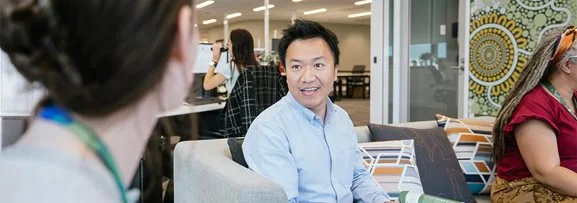Mental Health Commission
The Mental Health Commission (Commission) facilitates delivery of more than $1.4 billion per annum of mental health, alcohol and other drug (AOD) services.
The Commission’s Agency Commissioning Plan (2023-2030) (ACP) sets out the guiding principles, intentions and focus areas for commissioning over the short and medium term. The ACP is supported by a Commissioning Schedule that provides a timeline of planned commissioning for new and existing mental health and alcohol and other drug community services.
The ACP and Commissioning Schedule are now updated as part of their annual review.
The Commission has also updated the Commissioning Framework to align with its current strategic direction and to reflect contemporary commissioning practices.
The Commission requires all non-government mental health and AOD services to obtain and maintain external accreditation against a recognised quality standard.
Non-government mental health services
Non-government mental health service providers are required to be accredited against the National Standards for Mental Health Services 2010 (NSMHS) through a recognised Certification Body.
Re-certification is expected every three years before expiration of the previous accreditation.
Non-government mental health services are also expected to align their practices with the six Mental Health Outcome (MHO) Statements through the services and supports they provide to consumers and/or families and carers, although external evaluations against the MHO Statements is no longer required, they still form part of the Service Agreement. The MHO Statements also align with the requirements of the NSMHS. Examples of practices that align with the six MHOs are available here.
Non-government AOD providers
Non-government AOD service providers are required to be accredited against one of the recognised standards identified in the National Quality Framework for Drug and Alcohol Treatment Services (2019). Accreditation is to be obtained through a recognised Certification Body and re-certification is expected every three years before expiration of the previous accreditation.
Consumer/client and family/carer input
The Commission encourages all mental health and AOD consumers/clients, their families /carers, and other key stakeholders, to provide feedback to the Certification Body (auditor) when they visit service sites for accreditation purposes. Please contact your service provider to find out when the auditor is due to visit the services you use/work with.
If you have any queries about accreditation requirements for mental health or AOD services, please email quality@mhc.wa.gov.au.
Mandatory Reporting of Notifiable Incidents
All non-government mental health and AOD services purchased by the Commission are required to report Notifiable Incidents to the Commission within a reasonable timeframe. Some mental health NGOs are also required to report Notifiable Incidents to the Office of the Chief Psychiatrist (OCP) and the Department of Health’s Licensing Accreditation and Regulatory Unit (LARU).
The Commission, in partnership with the OCP and the LARU has established an secure, online portal called the Notifiable Incident Management System (NIMS) for the reporting of Notifiable Incidents by all providers.
NIMS enables mental health service providers and AOD service providers to report Notifiable Incidents to one or more relevant government agencies.
Effective 16 September 2024, notifiable incidents are to be reported through the Notifiable Incident Management System (NIMS).
To use NIMS, providers must be registered. To establish registration, providers should email the quality@mhc.wa.gov.au.
For Staffed Residential Services
All Private Psychiatric Hostels and Supported Accommodation Providers (excluding Step Up Step Down services) are required to report Notifiable Incidents to three government agencies: the Commission, the OCP and the LARU.
All NGOs providing psychiatric hostel services and support accommodation services should report Notifiable Incidents to all three government agencies using NIMS by selecting the “OCP Private Psychiatric Notifiable Incidents Form”.
For NGOs providing mental health services that employ clinicians (including Counselling Face to Face)
All NGOs providing mental health services that employ clinicians should report Notifiable Incidents to the Commission and the OCP by using NIMS and selecting the form :“OCP Notifiable Incident Form for NGOs providing mental health services that employ clinicians”.
All other Mental Health Services
All other Mental Health Services should report Notifiable Incidents using NIMS and selecting the “MHC Notifiable Incident Form”.
All AOD Services
All AOD services should report Notifiable Incidents using NIMS and selecting the “Notifiable Incident Report Form for Alcohol and Drug service providers”.
The Commission is currently revising its Notifiable Incident policy and procedure to incorporate NIMS. This will be made available soon.
Page last updated5 May 2025




